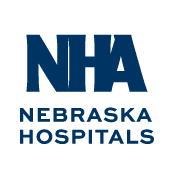EMTALA Update 2022 Webinar Series (THAF) 8/3, 8/10, & 8/17
Course Curriculum
Any hospital that has an emergency department and accepts Medicare and Medicaid patients must follow the federal law and the Center for Medicare and Medicaid Services (CMS) Conditions of Participation Interpretive Guidelines on the Emergency Medical Treatment and Labor Act (EMTALA). Hospitals without emergency departments must comply with EMTALA if they have specialized capabilities. EMTALA can also impact obstetrical patients and behavioral health patients.
EMTALA is a hot topic with CMS and OIG and should be on the radar screen for every hospital. There have been a recent increased number of deficiencies and increased CMS and OIG activity. As such, it is important for hospitals to be prepared should a CMS surveyor walked into your hospital today to investigate an EMTALA complaint.
Hospitals are required to report a potential EMTALA violation and can be cited for failure to do so. CMS issued a recent deficiency memo showing that over 5,350 hospitals received deficiencies for failure to comply with the federal EMTALA law. Common deficiencies of emergency departments, including EMTALA citations, will be discussed during this program.
This 3-part webinar will include the regulations and interpretive guidelines. It will include all 12 sections and an expanded section for on-call physicians and the shared and community care plan process.
Who Should Attend?
Emergency department managers, medical director, ED physicians and nurses and ED education staff; OB managers and nurses; behavioral health director and staff; CNO, nursing supervisors, nurse educators and staff nurses; outpatient directors; compliance officers, legal counsel, and risk manager; directors of hospital-based ambulance services; director of registration and staff; on-call physicians, chief medical officer, chief financial officer, patient safety officer and Joint Commission coordinator.
Learning Objectives
Part 1
• Recognize EMTALA as a frequently cited deficiency for hospitals
• Recall that CMS has a manual on EMTALA that all hospitals that accept Medicare must follow
Part 2
• Describe that the hospital must maintain a central log
• Discuss the hospital's requirement to maintain a list of the specific names of physicians who are on call to evaluate emergency department patients
• Describe the CMS requirements on what must be in the EMTALA sign
Part 3
• Describe the hospital's requirements regarding a minor who is brought to the ED by the babysitter for a medical screening exam
• Discuss when the hospital must complete a certification of false labor
Speaker Bios
Susan Seeley, MSN, RN, NEA-BC, Senior Consultant, Nash Healthcare Consulting
Susan Seeley has over 40 years of experience in the healthcare industry both as a nurse leader and as a clinical consultant with a focus on patient care services and regulatory compliance. As a consultant, she is experienced in conducting CMS and Joint Commission mock surveys and improving client hospitals’ accreditation survey preparedness through on-site education.
Sue has prepared organizations for continuous survey readiness by implementing ongoing teams to continue regulatory compliance after mock surveys. She also assists organizations with writing and implementing successful Plans of Corrections for EMTALA and other CMS and Joint Commission survey deficiencies. She has also performed assessments of quality programs and reviews of clinical operations, the structure and function of medical staff committees and implementation of peer review quality plans.
Fred Fehlinger, BSN, RN, PHRN, EMTP, Consultant, Accreditation and Regulatory Survey Readiness, Nash Healthcare Consulting
Fred Fehlinger is a nurse consultant for survey preparedness, on-site support and remediation for programs under The Joint Commission, CMS, DNV and specific Sate programs. These areas include hospital, ambulatory healthcare, critical access hospital, long term care and addiction/substance use. He also has years of expertise in quality, patient safety, infection control, case management, environment of care, emergency preparedness, medical staff, provision of care, patient’s rights, organizational leadership, and process improvement.
Fred’s background includes experience resolving and responding to OSHA complaints and survey findings, condition level deficiency findings, EMTAL violations and immediate threat/immediate jeopardy deficiencies. In his previous hospital positions, he worked in senior leadership positions as a quality Officer, Market Chief Quality Officer, Regional Director of Survey Readiness/Quality, and Director of Quality and Risk Management for Community Health Systems.
Cost: $450 (per hospital, no charge for additional lines)

